- Overview
- Trip Outline
- Trip Includes
- Trip Excludes
- Gallery
- Reviews
- Booking
- FAQ
The Trek
For years the Pin Parvati trail has been at the top of every serious trekkers list. The reason is because it is the perfect experience for an adventure lover! This challenging trail starts in the Kullu valley and makes its way through the lush green meadows to the cold yet stunning landscape of Spiti, but not before taking you through one of the most stunning passes in our country! The variety of landscape, the flora and fauna encountered on the trail, the expansive campsites make it a trek to remember! Ready for the challenge?
The Area
This trek starts in the Kasol, Kullu valley and ends in the Mudh, Spiti Valley. The Kullu valley is a prime tourist and adventure destination. Its unparalleled beauty along with easy accessibility has attracted many adventurists. No wonder some call it the Chamonix of India. On the other hand Spiti has a beauty of its own. This cold desert comes to life around this season showing off colours that are hardly
seen elsewhere.
Expected Weather
• Chances of Rain/ Hail : Moderate rainfall can be expected in June
• Snowfall: Possible in April and November
• Temperatures: Afternoon – 20 degrees Celsius, Nights – Around -2 degrees
Celsius at higher camps (June), -8 degrees Celsius in (October)
Total Trekking Distance: 106 kms
Highest Altitude: 5319 mts
Day 1: Assemble in Kasol
Plan to reach Kasol by 1 PM. Briefing and Gear check in the afternoon. Overnight stay in a hotel.
Day 2: Drive to Barshaini and Trek from Barshaini to Kheerganga (2960 mts)
Distance: 11 kms, Trek time: 7 hours. Overnight stay in camps
Day 3:Trek from Kheerganga to Tunda Bhuj (3200 mts)
Distance: 13 kms, Trek time: 8 hours. Overnight stay in camps
Day 4: Trek from Tunda Bhuj to Thakur Kuan (3620 mts)
Distance: 6 kms, Trek time: 7 hours. Overnight stay in camps
Day 5: Trek from Thakur Kuan to Odi Thach (3815 mts)
Distance: 9 kms, Trek time: 5 hours. Overnight stay in camps
Day 6: Trek from Odi Thach to Mantalai Lake (4096 mts)
Distance: 11 kms, Trek time: 8 hours. Overnight stay in camps
Day 7: Trek from Mantali Lake to Summit Camp (4800 mts)
Distance: 7 kms, Trek time: 8 hours. Overnight stay in camps
Day 8: Trek from Summit Camp to Summit (5319 mts) to Pin base (4800 mts)
Distance: 12 kms, Trek time: 10 hours. Overnight stay in camps
Day 9: Trek from Pin Base to Tiya (3500 mts)
Distance: 12 kms, Trek time: 6 hours. Overnight stay in camps
Day 10: Trek from Tiya to Mud (2970 mts)
Distance: 12 kms, Trek time: 5 hours; Drive to Kaza. Drive 1 hour. Overnight stay
in hotel. Trek ends in the morning.
Day 11: Buffer day, in case of bad weather
• All accommodation from Kasol to Kaza.
• All food from Kheer Ganga to Mud.
• Transport from Kasol to Barshaini and from Mud to Kaza.
• Rentals for all common gear provided to you like tent, sleeping bags etc.
• Forest Entry Permission charges.
• Guide and expertise charges.
• Trek insurance.
• 5% GST
• Excludes food in Kasol & Kaza.
• Meals or drinks purchased by participants during the travel or trek (example
biscuits, fruits etc)
• Rentals for personal clothing
• Travel to Kasol and Travel from Kaza.
• Backpack offloading charges (₹600/- per day per bag, Limit 8 kgs)
Kasol is well connected from Delhi/ Chandigarh. You have regular bus service from both Delhi and Chandigarh. The nearest airport is Kullu. One can take a cab from Kullu to Kasol which costs approximately 2000 INR. You also get regular bus service from Kullu to Kasol.
Note, it is advisable to book a cab to avoid inconvenience.
Plan your travel such that you arrive in Kasol on Day 1 by 10:00 AM (latest) and book your return (departure) from Kaza on Day 11 (accounting buffer day of the trek) after 03:00 PM.
A certified trek leader, a guide, cook & porters will accompany you during the trek
The common perception is that alcohol makes you feel warmer, however it also dehydrates you & dehydration can be fatal while trekking. Hence consumption of alcohol is prohibited. Smoking in camps is not allowed.
We will be taking insurance for each trekker, the cost of which is included in the trek price.
We’ve been organizing treks for over five years and have had many female trekkers trek with us. In fact, a lot of them come solo for treks. There has never been a complaint about the atmosphere of a trek, about other trekkers or our professionalism. They have all been kind enough to leave a review.
You will be sleeping in twos or threes in your tents in sleeping bags. The sleeping bags are snug and comfortable. We will be providing inflatable pillows.
In all the camps where the accommodation is in tea houses/ home stays, there will be proper toilets. The toilets are mostly western, in case if they‘re Indian, then we try to provide a toilet seat most of the times.
On the day of camping, we will have toilet tents (with a dry pit toilet), the most hygienic way of answering nature’s call.
A dry pit toilet is an eco-friendly sanitation solution featuring a pit dug into the ground, topped with a toilet seat and a wrought iron stand. Near the toilet, a pile of mud, sand, or coco peat is provided for covering waste after use, facilitating rapid breakdown of fecal matter due to increased microbial activity. This method eliminates the need for water, thereby preventing contamination of nearby water sources, as water toilets are prohibited at campsites.
While toilet paper is available, please use it sparingly to avoid overloading the pit, which can take years to decompose. Please refrain from using wet wipes as they are not bio degradable or use bio-degradable wipes.
Through the trek, there are no bathing facilities at campsites. Trekkers often take advantage of running streams to freshen themselves up.
No. Guests are expected to carry their own power banks.
Good Sturdy Backpack: Prefer a trekking pack over a backpacking one. The size of the backpack depends upon the participant. Normally for a 7-9 day trek a 50-60 litre pack should suffice.
Shoes: Any waterproof trek (not hike) shoe would be ideal.
Socks: 3 pair cottons and 3 pairs of woollens.
Trek pants (ideally water resistant): Get two quick dry summer trek pants. On summit climb or a major altitude gain day for Goechala, Rupin and Stok), you can replace one dry fit trek pant with Shell trekking pants. If you don’t have trek pants you can replace it with Gym track pants.
T-shirt/ Base layer: Get 3 T-shirts/ trekking base layer on the trek, one of which should be thick and full sleeve. Avoid cotton and prefer dry fit.
Fleece/ Sweater/ good quality Hoodie: Get 1 fleece jacket or sweater. Fleece is preferred over sweater or hoodie as it is lightweight and easy to carry. Sweaters and Jackets can be heavier than Fleece for the warmth they offer.
Down/ Padded Jacket – Down/ Padded jacket (Upto -5 degrees). If you don’t want to get a padded/ down jacket, get two fleeces.
Cotton track pants for camp – These are specifically for cold evenings at the campsite. This can be ignored if you are comfortable wearing your trekking pants in the camp.
Thermals: 1 pair. We wear thermals only upon reaching the campsite not while trekking.
Windproof Jacket: All rain proof can be used as Wind proofs. Required as an additional layer during trekking in windy conditions. Avoid if you have a rain proof jacket.
Rainwear:
Option A – Rain set – One Waterproof jacket (3000 mm waterproofing), Rain proof pants and Bag cover
Option two – Poncho that covers your body and bag completely.
We ideally recommend Option 1 as poncho makes trekking difficult.
Woolen Cap/ Balaclava-1: To cover your ears, head and neck. Get one woollen cap and one neck warmer or balaclava.
Neck Warmer/ Scarf-1: For evenings. Avoid if you are comfortable using a Balaclava.
Gloves: 2 gloves out of which 1 can be water proof and one woollen. The waterproof one has to ideally be padded and a size larger than you normally use. This is so that you can wear both your gloves together if required.
Suncap – 1
Sunglasses – 1
Toiletries – Also include sunscreen, moisturizer and lip-cream
Headlamp/Torch -1. Preferably headlamp.
2 water bottles (1 litre each) – One can be a thermos flask. One can also get a hydration pack.
Camp shoes/ Flip flops for camp
Plastic covers for inside the backpack to keep your clothes dry
Daypack – Required if you have a summit days climb. Preferably one that can be compressed.
Documents: 2 passport sized photograph, Address and Photo proof (Driving License or Aadhaar card), Doctor’s medical certificate saying that you are fit for the trek. We reserve the right to not take you on the trek if you fail to produce this.
Trekking pole
Meals will be provided by us. However you may carry snack items to much on like dry fruits, biscuits, chocolates, protein bars, or nuts.
Yes, you are ideally expected to carry your backpack. But you do have an option of offloading your bags on a mule for an additional cost. The cost will be INR 350/ per day per bag. One is expected to inform us about offloading 1 week prior to the trek.
7-8 kms slow jog OR 25kms kms cycling. Pace is not important, consistency is important (non-stop jogging/running/cycling)
Squats 30 x 3, Lunges 30 x 3, Calf raises 30 x 3
All of the above at least 6 times a week
Climbing stairs 75 floors with backpack (Once a week, ideally after a run)
If you cancel –
– 60 days before the trip: we can process a complete refund minus minimum processing charges.
– Between 30-45 days before the trip: you will be refunded 50% of the trek fee.
– Within 30 days before the trek starts: No refund.
– If your spot is replaced in a full batch: we will process a complete refund after canceling minute operational charges. (For fixed departures only)

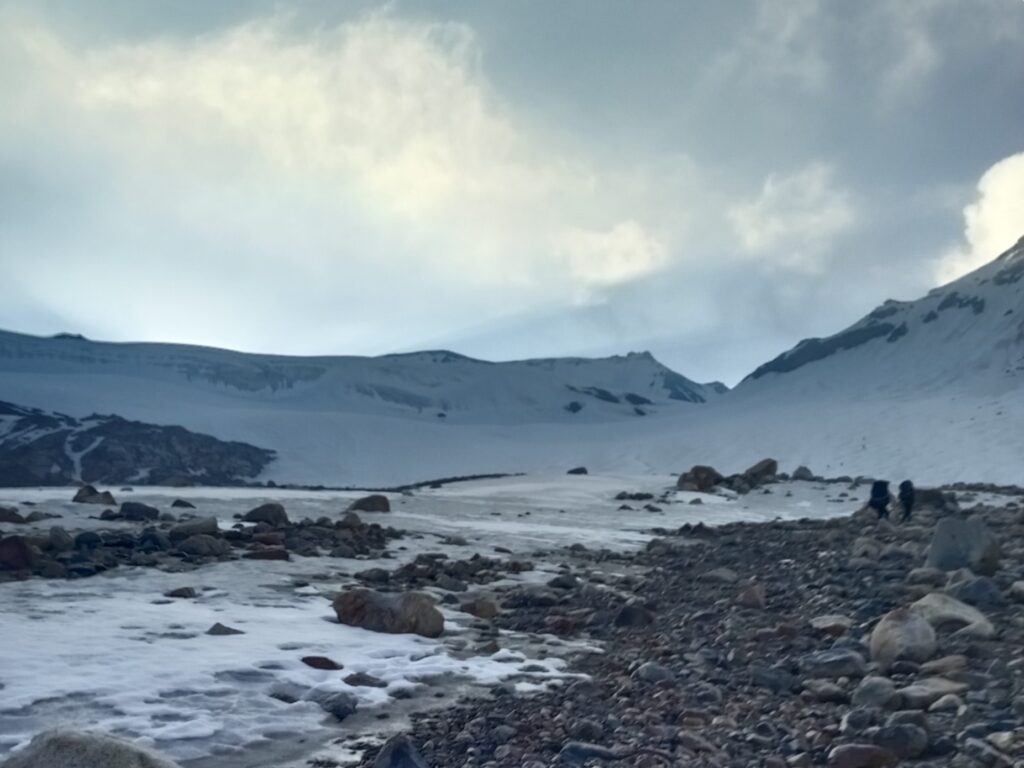
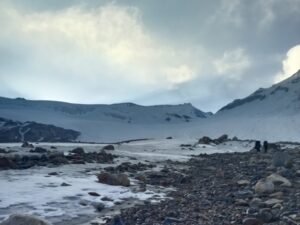
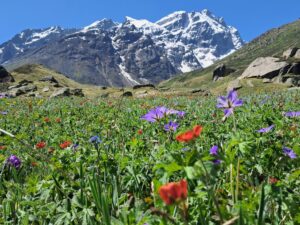

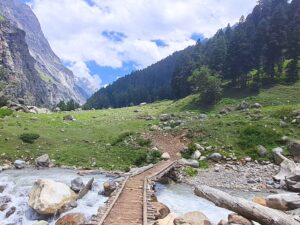

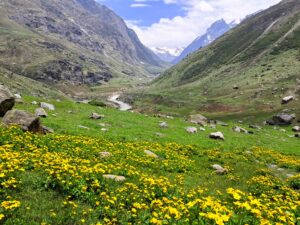

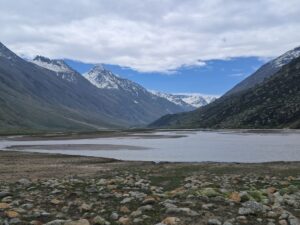

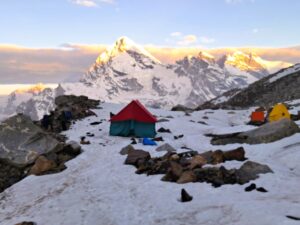




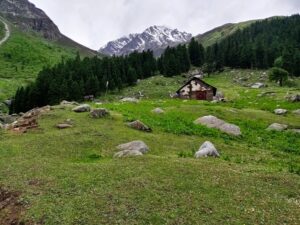

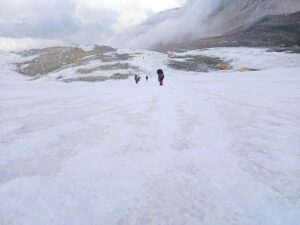


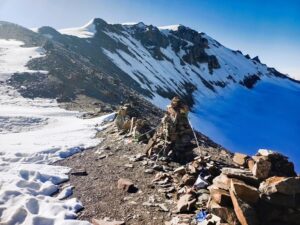


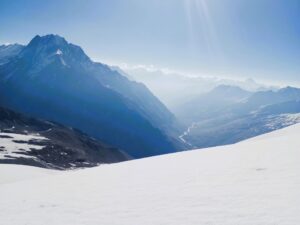
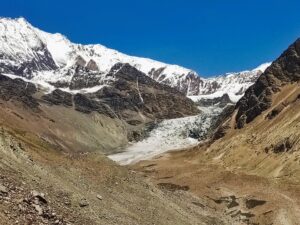





There are no reviews yet.